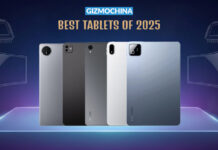Ever heard of Liquid Lens Technology? No? That’s fine. We will explain. Liquid lens technology was developed more than two decades ago by French physicist Bruno Berge. Unlike a lot of cameras that use either a mechanical lens or software to change the focus, a camera with a liquid lens focuses by charging the liquid in the lens. This liquid which can be a mixture of oil and water changes shape when charged. The video below explains how it works compared to a traditional zoom lens.

There are lots of advantages it has over the lens found in a digital camera or a motorized mechanical lens. First is the speed and accuracy at which it changes focus. It is extremely fast and whatever object it focuses on is sharp. Second, because all it needs is a liquid, there is no need for moving parts. It also occupies a small area, so there are no bulky add-on lens or camera bumps. A liquid lens is also said to be cheap to make. And finally, it can achieve a large zoom range as all you have to do is change the voltage of the charge which determines the shape the liquid takes for the desired zoom range.
Liquid lenses have actually been used mainly in industrial cameras but latest report says Huawei has found a way to use it in mobile phones and even applied for a patent for it back in November 2018. According to the source, Huawei is developing a triple camera module that includes an RGB sensor, a monochrome sensor, and a TOF sensor. The insider who revealed the info added that the camera module has a liquid inside which points at it having a liquid lens. This camera module is also said to be arranged vertically along with the LED flash. Sadly, he wasn’t able to take pictures of the said camera module.
READ MORE: Huawei Mate 20 Pro is now leading DxOMark along with P20 Pro with 109 score
It is believed that the liquid lens camera module will appear in a Huawei phone this year and the guess is the Mate 30 Pro and not the P30 Pro. If the Huawei Mate 30 Pro does come with a liquid lens, it could be a breakthrough for the mobile industry and help cement Huawei’s position as one of the biggest innovators in the industry.
(Via)








Comments